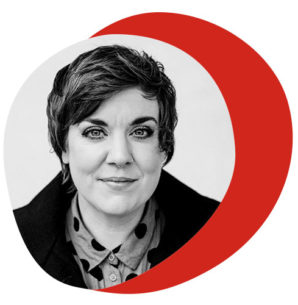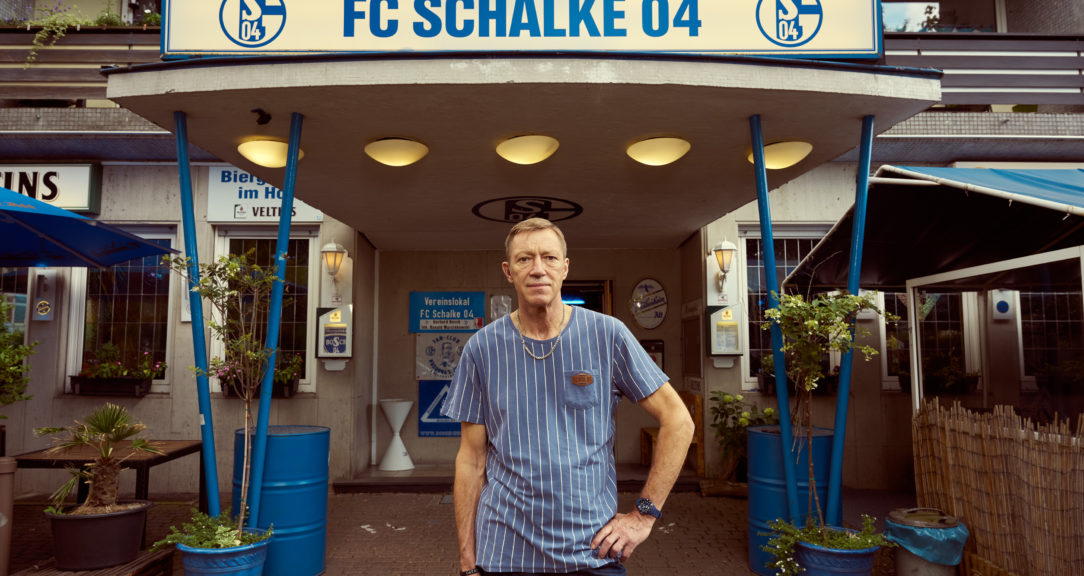On a freezing November day in Hamburg, Olaf Nieß sat in a small motorboat and surveyed the water around him: swans everywhere.
Perhaps four dozen white swans were congregating in a tributary of the Alster River, chattering loudly. Passers-by threw bits of bread to them, lingering to watch the swans’ elegant necks unfurl to reach the snacks. Occasionally, a more demanding swan stretched out its massive wings and slapped the surface of the petrol-hued water, hissing at the smaller birds to stay away.
The swans knew something was happening. Nieß chatted with his assistant, sometimes looking up to shout a word of greeting to the police patrol boats that maneuvered up alongside him. Soon, four blue boats lined with dry hay were in formation around Nieß, waiting on his word.
Nieß has been Hamburg’s Schwanenvater — German for swanfather — for 35 years. He’s in charge of caring for the birds that are so beloved by the city that they have an entire administrative office. Every November, it’s time to round up the birds and bring them to their safe winter home, a place further north with a warm tent and a lake that’s kept ice-free. To make this journey, the swans must be caught by hand and hauled onto the small boats, their wings and legs tied so they can’t flee, and sailed up the Alster. Dressed in a black double-breasted coat, Nieß has the ease of someone who’s done this many, many times before.
Protect and serve

The swanfather is one of Germany’s oldest civil servant jobs. The Amt des Schwanenwesens — literally the office of the swans — has existed since at least 1674. There are city documents dating back to 1591 detailing funds allocated for feeding the swans.
Hamburg has kept swans in an official capacity since the 11th century. The major port city, connected to the North Sea by the Elbe River, has been an important trading spot since the Middle Ages. Swans were a symbol of wealth and independence; owning them was a privilege usually only afforded to the aristocracy.
In fact, a city mandate in 1664 made “insulting, hurting, or killing an Alster swan” a punishable offense. Offending the swans, is akin to offending the city of Hamburg. So taking care of these animals is an important duty.
“Civil service has a long tradition in my family,” Nieß says. His father was Hamburg’s swanfather for 46 years. Nieß often accompanied his father while he worked, from the time he was a baby.
“It was quite exciting as a child,” he says. “You’re a kid who gets to go through the Hamburg port with an icebreaker or accompany the fire department on an operation and get a peek behind the scenes. There are some fun photos of me where I’m sleeping in the back of a VW Beetle and a bunch of swans are sitting in front of me.”
They worked together for a decade before Nieß took over the job of district gamekeeper, his official title. The position’s salary can range from €3,000 to €5,000 ($3,400 to $5,700) a month, depending on the location and level of experience.
In 1797, Hamburg’s swankeeper was paid 30 marks courant (the local currency) per year as well as compensation for the swans’ oats, which totaled 48 barrels per year. In 1875, Hamburg’s total annual budget for swan care was 4,338 marks. The mark at the time was pegged to the price of gold; that would equal about €89,000 today.
As Hamburg’s district gamekeeper, Nieß is in charge of all wild creatures living in Hamburg — geese, deer, foxes, wild boars, and even occasionally seals who make a wrong turn somewhere up the river. While escorting the swans to and from their winter quarters every year is the most public part of his job, he spends a lot of time taking care of injured or trapped animals.
“Most of what I do takes place away from the public eye,” he says.
Before becoming the swanfather, Nieß had to complete a three-year traineeship to become a Berufsjäger (professional huntsman). Then in 1996, he took over leadership of the office of the swans from his father and became a full-time public sector employee, like 11% of all Germans. In Germany, this type of position forms part of the broader public service sector, which also includes civil servants with unlimited tenure—known as Beamter—and soldiers.
Recently, Nieß had to fetch a swan that had crash-landed near a highway and bring it to safety without spooking it.
“If someone saw me trying to capture the swan on the highway, it may have looked like I very easily rounded him up,” he says. “But I was incredibly concentrated and tense. Because if the swan tries to take off and flies into traffic, then a creature with a wingspan of 2.2 meters is suddenly crashing toward a car driving 120 kilometers per hour.”
Bird alert
Nieß took the job knowing that he would need to attend to injured or endangered animals no matter the time of day. Emergencies — whether it’s an oil spill on the river or a pack of wild boars loitering outside the American consulate, which happened in 2012 — don’t happen on a set schedule. As such, work-life balance is a foreign concept for Nieß, who is also a father of two.
Covid-19 has also created a new set of problems. More people have become interested in outdoor activities on the rivers, such as paddle boarding and boating. But sometimes leisure seekers get too close to the swans’ nesting areas, and the birds get spooked and unsettled. A few years ago, Nieß was mostly able to gather all 120 or so swans in one go. Now, they’re dispersed across Hamburg’s waterways, and collecting them all has become a multiday endeavor.
Nieß is also dealing with an infectious disease: bird flu. “Fighting infectious disease is increasingly becoming a pillar of our official duties,” he says.
With bird flu cases documented in northern Germany in 2020 and 2021, Nieß and his team are on high alert. So far, through quarantining and containment, he’s been able to keep his flock healthy.
“We tried everything to ensure that there are no chains of infections in Hamburg,” he says.
The tent where the swans will go for the winter also serves as a sort of quarantine, where the flock can be monitored.
“Unfortunately, this continues to happen, and it seems like it’ll become a regular thing,” he says of the quarantine. “And we’ll have to adapt and see how we tackle that issue.”
Home for the winter
Back on the water, it’s go time. Accompanied by water police, trained volunteers and his assistants, Nieß begins driving the swans toward a sluice near Hamburg’s city hall. Despite the chilly weather, a crowd of observers has gathered on the bridge above to watch.
About 50 or so swans are corralled into the channel, and the lockmaster lowers the water level so the birds can’t jump out onto the surrounding platforms. Then the action starts. Nieß’s arms shoot out, grabbing the closest swan, and he heaves the screaming, flapping creature out of the water and onto the boat. A full-grown swan can weigh 9 to 13 kilos — about the weight of a 2-year-old child.
The swans begin honking indignantly as they get picked out of the water one by one and pulled onto the boat, where their wings and feet are quickly bound with Velcro straps. But once the swans are in the boat they seem to relax — or at least accept their fate. They stop flailing, and only occasionally shift to accommodate new passengers. The whole process goes as seamlessly as it can go when dealing with animals.
“It’s so important that we do this calmly and work well together as a team,” Nieß says. “When you’re dealing with animals, being hectic is absolutely the wrong move. The animals shouldn’t be exposed to unnecessary stress.”
Despite the stress of the job, Nieß has no plans for retirement just yet; he expects to stay in his role as swanfather for at least another 10 years. At the moment, he’s got an apprentice learning the ropes, but Nieß says it’s way too early to be talking about any possible replacements just yet.
After about an hour, all the swans are safely sitting in the boats, a crowd of long white necks sticking out toward the sky. Nieß and his team navigate the boats out of the sluice and begin their journey north. Local legend says that Hamburg will be a free and prosperous city as long as Hamburg’s swans swim on the Alster. So far, so good.
Read more
Sign up to keep up to date with ReThink Q.


















